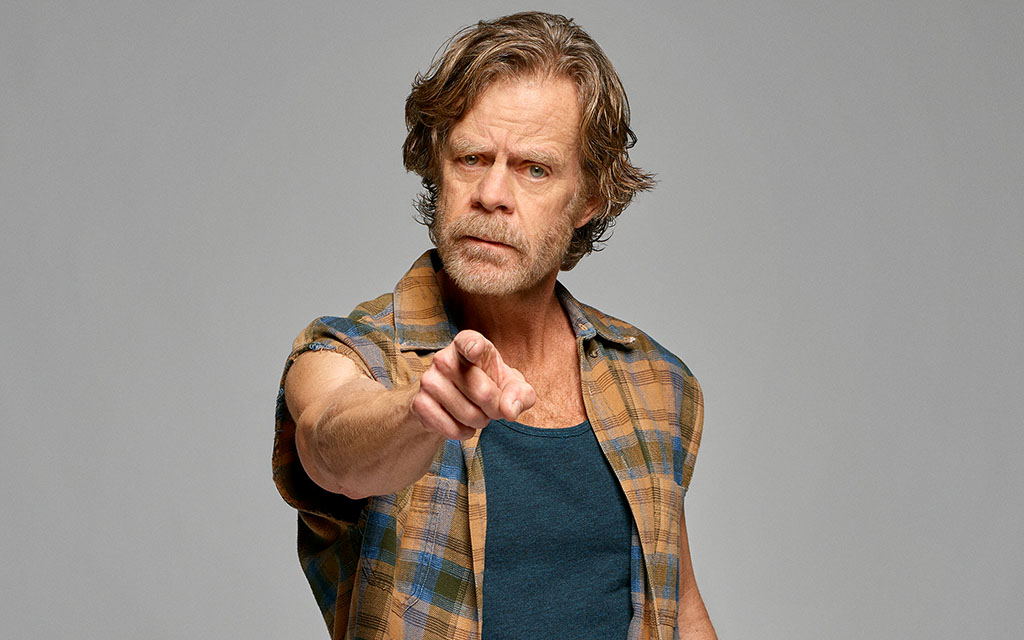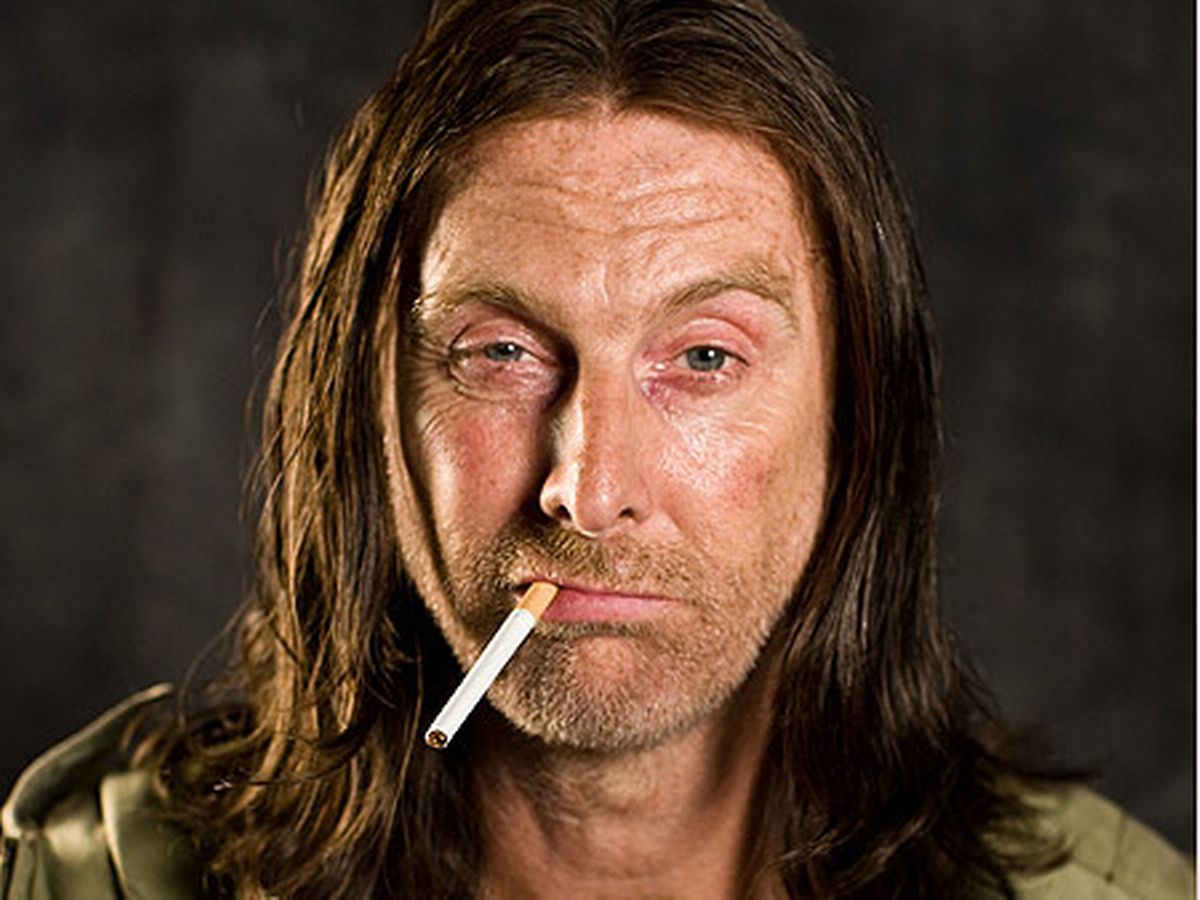Did Frank Gallagher, the notorious patriarch of "Shameless," truly meet his end, and what became of his sprawling, chaotic family? The series finale of "Shameless" definitively closed the chapter on Frank Gallagher's tumultuous life, leaving behind a legacy of dysfunction, resilience, and unforgettable moments.
For eleven seasons, "Shameless" held viewers captive with its unflinching portrayal of the Gallagher family, residing on the fictional Chatsworth Estate in Manchester, a microcosm of poverty and societal neglect. At the heart of this whirlwind of poverty, addiction, and questionable choices was Frank Gallagher, a character as charismatic as he was destructive. Played by the incomparable William H. Macy, Frank was a master of manipulation, a connoisseur of chaos, and a father who, despite his flaws, left an undeniable mark on his six children: Fiona, Lip, Ian, Debbie, Carl, and Liam. The series, a Showtime adaptation of the original British series, became a cultural phenomenon, celebrated for its raw authenticity and refusal to shy away from the darkest corners of the human experience.
The series finale, a poignant conclusion to a decade of South Side shenanigans, provided answers to the questions that had lingered for years. Frank's luck, as it often did, finally ran out. But the final episode was more than just a conclusion to Frank's story; it offered a glimpse into the future of his children, each grappling with the inheritance of their upbringing. It was a farewell, a reckoning, and a testament to the enduring power of family, even in its most fractured forms.
The narrative was not just confined to the Gallagher clan; it was a tapestry woven with the lives of their neighbors, the Maguires, friends, and the colorful characters who populated the local shops and pub, the Jockey. "Shameless" presented a world where the lines between right and wrong were constantly blurred, where survival often demanded bending the rules, and where love, in its most unconventional forms, could still blossom amid the wreckage. The series' success lay in its ability to be both hilariously funny and deeply moving, offering a critique of societal failings while simultaneously celebrating the resilience of the human spirit.
Before diving into the specifics of the finale, its important to acknowledge the impact of "Shameless" on its audience. The show tackled sensitive issues with remarkable candor, addressing addiction, poverty, mental health, and the challenges faced by marginalized communities. Its unflinching approach to these subjects resonated with viewers, sparking conversations and providing representation for those often overlooked by mainstream media. "Shameless" wasn't just entertainment; it was a mirror reflecting the harsh realities of modern life.
The man behind the mischief, William H. Macys portrayal of Frank Gallagher was nothing short of iconic. His ability to embody both the charming scoundrel and the utterly reprehensible father was a testament to his acting prowess. But, the show wasn't just about Frank; it was an ensemble piece. The cast, including Emmy Rossum as Fiona, Jeremy Allen White as Lip, Cameron Monaghan as Ian, Emma Kenney as Debbie, Ethan Cutkosky as Carl, and Christian Isaiah as Liam, delivered consistently stellar performances, transforming their characters into figures of immense complexity and emotional depth.
The series impact can be measured by its longevity and the depth of its fan base. The fictional Chatsworth Estate, though a product of the writers' imagination, felt real because the characters who inhabited it felt real. Viewers connected with the Gallaghers' struggles, their triumphs, and their unwavering loyalty to each other, even when they were at each other's throats. "Shameless" wasn't a fairytale; it was a reflection of the messy, unpredictable, and often heartbreaking reality of life.
| Aspect | Details |
|---|---|
| Full Name | Francis "Frank" Gallagher |
| Character | Protagonist of the series "Shameless" |
| Portrayed By | William H. Macy |
| Date of Birth (Fictional) | Unknown |
| Place of Residence (Fictional) | Chatsworth Estate, Manchester |
| Marital Status | Divorced (Monica Gallagher, deceased) |
| Children | Fiona, Phillip "Lip", Ian, Debbie, Carl, and Liam Gallagher |
| Known For | Alcoholism, Negligence, Manipulation, Scheming, Irresponsibility, Charisma |
| Occupation | Unemployed, Various scams and schemes |
| Major Story Arcs | Battles with addiction, dysfunctional family relationships, attempts at self-improvement (often unsuccessful), constant struggles with poverty. |
| Fate in Series Finale | Dies from complications related to his various health issues and substance abuse. |
| Defining Characteristics | Selfishness, charm, resilience, intelligence, and a complete lack of remorse |
| Memorable Quotes | "I'm Frank Gallagher and I'm a survivor.", "I'm a Gallagher, we're survivors.", "I'm a Gallagher, what's the worst that could happen?" |
| Impact on Series | Central figure and catalyst for much of the conflict and comedy; embodied the show's themes of poverty, addiction, and dysfunctional family dynamics. |
Reference: IMDB - Shameless
The series finale offered a poignant, yet fitting, conclusion to the lives of the Gallagher children. While Franks death served as a punctuation mark to the series, it was the trajectory of his children that provided a sense of closure. Fiona, after years of shouldering the family's burdens, had finally found her own path. Lip, struggling with his own battles with sobriety, was attempting to build a stable life. Ian and Mickey were planning to start a family. Debbie, as ever, was still embracing her own unconventional path and Carl was also building his life. Liam, the youngest, was left to navigate the world without his father.
The show, while comedic, delved into the complexities of addiction, with Lip's journey to sobriety mirroring the struggles of many in the real world. It showcased the cyclical nature of poverty, as the Gallaghers constantly battled financial instability. The series highlighted the resilience of the human spirit, even in the face of seemingly insurmountable challenges. The finale provided a sense of hope, suggesting that, despite the hardships they had faced, the Gallagher children had a chance to break the cycle.
The series "Shameless" was not always easy to watch. There were moments of profound sadness, moments of shocking depravity, and moments that made you question the nature of family itself. But it was also funny, heartwarming, and, above all, honest. It was a testament to the power of storytelling, offering a complex portrait of a family navigating the challenges of life with grit, wit, and a healthy dose of dysfunction. "Shameless" was more than just a television show; it was a cultural phenomenon, leaving an indelible mark on the landscape of modern television.
The show's setting, the fictional Chatsworth Estate, was a character in itself. The dilapidated housing, the littered streets, and the sense of community, were all meticulously crafted to create an immersive and believable world. The backdrop of Manchester, a city known for its working-class roots, provided the perfect setting for the Gallaghers' struggles and triumphs. The estate was more than just a place; it was a symbol of the systemic issues that shaped the lives of the show's characters.
The legacy of "Shameless" extends beyond the confines of the screen. The show sparked conversations about social issues, challenged societal norms, and provided a platform for marginalized voices. It was a bold and uncompromising look at the underbelly of society, forcing viewers to confront uncomfortable truths. The show's impact can still be felt today, as its influence is seen in the many other television shows that followed, adopting a similarly realistic and unflinching approach to storytelling.
The final episode, which arrived after eleven seasons of exploring the lives of the Gallagher family, saw Frank succumbing to his various health issues and a heroin overdose. In his final moments, he left behind a farewell message for his children, and the words encapsulated the complex relationship he had with them. The fact that Franks death was not a grand, dramatic moment, but a quiet, almost inevitable end, was true to his character and the tone of the show.
Looking back, the show's popularity stemmed from its relatable characters and the universal themes it explored. The struggles with poverty, addiction, and familial bonds resonated with audiences across the globe. The writing, often sharp and witty, kept the audience engaged, while the performances brought a level of authenticity that elevated the show beyond the confines of a typical sitcom.
The show's focus on the characters' flaws, rather than idealizing them, allowed for a more nuanced and authentic portrayal of human nature. Frank Gallagher, the quintessential antihero, was a master manipulator and a terrible father. Yet, viewers couldn't help but be drawn to his charisma and his unwavering belief in his own survival. "Shameless" didn't shy away from the ugliness of life. It embraced it, with all its complexities and contradictions. This is, ultimately, what made the show so memorable and enduring.
The series' commitment to realism was also apparent in its depiction of the city of Manchester. The gritty aesthetic and the working-class setting added another layer of authenticity. The show's success stemmed not just from its characters and storylines, but from its ability to create a complete and believable world.
The series finale didn't tie everything up in a neat bow. It left room for interpretation and allowed the audience to imagine the future of the Gallagher children. Fiona, Lip, Ian, Debbie, Carl, and Liam were not magically cured of their problems. They were left to navigate the complexities of life, armed with the lessons they had learned, the scars they had acquired, and the enduring bond of family that held them together, even when they were miles apart. The finale suggested that, despite everything, there was a glimmer of hope for the future.
Shameless was a television series that broke boundaries and challenged expectations. It delivered both laughter and tears, and remained relevant throughout its eleven seasons. Frank Gallaghers final act was a fitting end to a character defined by chaos and a disregard for societal norms. With his passing, the series offered not just a farewell, but a moment of reflection on the legacy of a dysfunctional family that captured the hearts and imaginations of millions of viewers across the globe. The show left a lasting impact, demonstrating that even amid poverty, addiction, and the most chaotic of circumstances, the human spirit could endure and, perhaps, even flourish.
The influence of "Shameless" extended beyond its entertainment value, prompting discussions on societal inequalities and mental health, and sparking a broader conversation about the issues that often go unacknowledged. The shows raw honesty, coupled with the stellar performances of its cast, helped it to become more than just a series; it became a cultural touchstone.
The show's lasting impact is evident in its continued popularity. "Shameless" remains a popular show to stream, and its legacy lives on. Its depiction of family, even in its most imperfect forms, resonates with audiences, proving that the most compelling stories are often those that are most honest and human. Frank Gallagher may be gone, but the family, the memories, and the impact of "Shameless" will endure.

